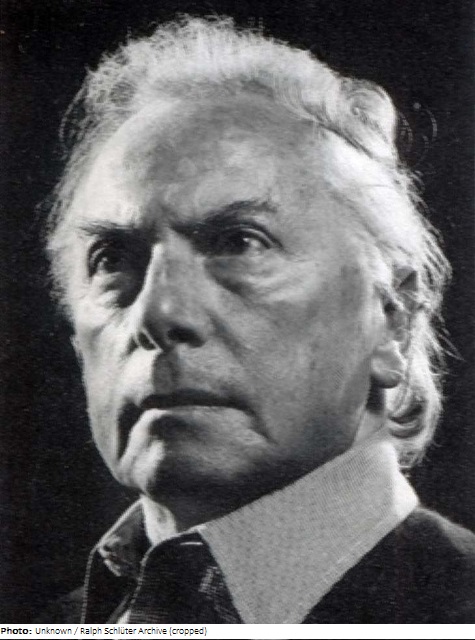Andrzej Panufnik

Biographical information
| Roles | Competed in Olympic Games (non-medal events) |
|---|---|
| Sex | Male |
| Full name | Andrzej•Panufnik |
| Used name | Andrzej•Panufnik |
| Born | 24 September 1914 in Warszawa (Warsaw), Mazowieckie (POL) |
| Died | 27 October 1991 in Twickenham, England (GBR) |
| NOC |  Poland Poland |
Biography
Andrzej Panufnik graduated from the Warszawa (Warsaw) Conservatory of Music in 1936 with a degree in music theory and composition. He was then trained as a conductor in Wien (Vienna) and went to Paris until 1939 for further studies. During World War II he gave legal and illegal concerts in occupied Warszawa, sometimes together with his friend and fellow composer Witold Lutosławski (1913-94).
After the war Panufnik became conductor of the Krakow Philharmonic Orchestra and then director of the Warsaw Philharmonic Orchestra. In 1953 he led an official Polish cultural delegation to China, where he met Mao Tse-tung. The 1st prize in the pre-Olympic composition competition for the Uwertura Bohaterska (Heroic Overture) was one of many awards he received for his compositions in the 1950s. Because of the restrictions imposed by the political guidelines for artists in post-war Poland, he left the country in 1954 and emigrated to Great Britain. Therefore, he was subsequently silenced in Poland.
In England Panufnik worked as musical director of the City of Birmingham Symphony Orchestra. From 1963 he concentrated on composing and was awarded the Prix de Composition Musicale Prince Pierre de Monaco and the Sibelius Medal. After the lifting of censorship restrictions in Poland in 1977, many of his works were performed there for the first time. In the 1980s Panufnik was appointed an honorary member of the Royal Academy of Music in London and of the Association of Polish Composers. In 1990 he returned to Poland for the first time. The following year he was knighted in Great Britain and eventually posthumously awarded the Polonia Restituta Medal.
The first performance of his Heroic Overture took place on May 16th, 1952 at the Warsaw Philharmonic Hall. A trip to Helsinki during the Olympic Games, where he conducted a performance of his work, was his only trip abroad during that period. The first sketches were from the time of the German invasion in 1936, which he expanded into a 6-minute dynamic orchestral overture in 1951.
Results
| Games | Discipline (Sport) / Event | NOC / Team | Pos | Medal | As | |
|---|---|---|---|---|---|---|
| 1952 Summer Olympics | Art Competitions |  POL POL |
Andrzej Panufnik | |||
| Music, Compositions For Orchestra, Open (Olympic (non-medal)) |